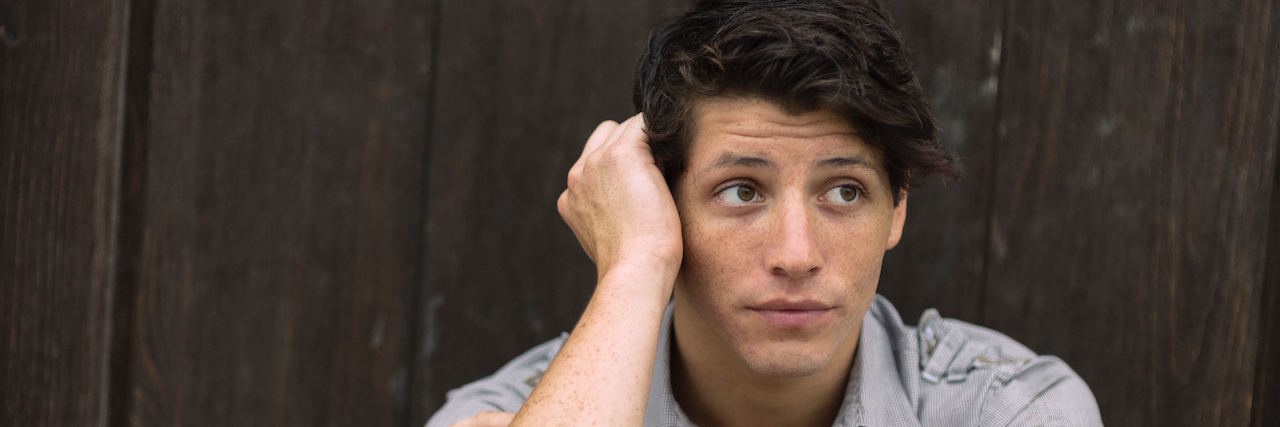What It’s Really Like Growing Up With Mental Illness
The day the darkness came was like any other.
I had high hopes for the coming school year. Eighth grade band was going to be so fun, I thought, because I could finally play some challenging music. My second year of junior high German looked promising. I had plenty of friends, a doting family and everything I could ever ask for.
• What is Bipolar disorder?
Then why was I feeling so… low?
As the seasons shifted from summer to fall, a growing worry came over me, like the first gray clouds at the edge of a storm. I began to feel distant, tired, even a little sad and hopeless. Gradually my thoughts turned to overt negative judgments about myself.
“You’re hideous. You’re incredibly stupid. No one loves you. You deserve to feel pain.”
I had no mechanism to resist these thoughts. They became loud in my head, drowning out so much — my joy of music, my social cues, my family bonds. The thoughts became a voice, a single audible source. I call him The Gray Man. I imagined him to have a rough, old, weathered face, skin tanned by the sun, a salt and pepper scruff over the loose skin underneath his chin, gray hair and bony facial features.
His hate-filled words simply would not stop. My self-hatred blossomed under his tutelage. I became consumed with anger and despair because of who I was and what I had done.
I was 13. The worst thing I had possibly done at the time was probably a few harsh words in an argument or some playground-level insults. But The Gray Man convinced me otherwise. I was so remarkably self-conscious that I withdrew into myself and away from others. I became somewhat of a hermit, only spending time with friends if they forced the issue and keeping to myself at school. I grew detached from my family as well.
The thoughts turned into command hallucinations, instructing me to self-harm. I followed those orders but kept any evidence carefully hidden. I was as much ashamed of the damage as I was of myself in general. I wore a light jacket often, even in class and during the warmer months.
I also began to experience delusional thinking. I thought people were following me. I once thought a news anchor was speaking directly to me, giving me a code to something I barely remember. I began to believe if I just met a few specific famous people, we would become best friends and they would provide me with riches and fame.
There was euphoric mania as well. I often thought about living a full life together with attractive girls I had just met. One time I didn’t sleep for a few days, and I wrote a long, three-piece composition for school band in just a few hours. Complete with parts for all of the instruments, I thought it sounded perfect on the computer program I made it with. But much of it was incoherent and impossible to play.
I began to experience serious anxiety around activities I was good at and used to love. I got jitters before taking tests — a formerly excellent skill of mine — and lost the love of reading I had cultivated since I was eight. I even became so overwhelmed with a solo for a Christmas concert I felt physically ill and stayed home. It manifested like a bad cold, but I knew I wasn’t sick. I had lost some perspective; I probably would have performed just fine.
After a particularly rough session of self-harm I was interrupted by my parents. That kicked off a whole series of tests, treatments, therapy and eventually medication. I was checked out of school often for these visits, detaching me further from my known world. The medication was rocky to start, but slowly it mitigated so much. The hallucinations, delusions, self-harm, depression and mania faded with them, allowing my later high school years to be much more manageable — almost normal. And the therapy was utterly lovely. I expanded myself many times by learning about how I worked on the inside, how my emotions manifested and how to deal with them. I became stronger, wiser, kinder and yes, just a little bit happy.
I don’t know if there is much I would say to my younger self, or much I would change. Perhaps I would counsel him to go easier on himself. When you’re young, you make mistakes. That’s how we learn. I would certainly try my hardest to persuade him from lingering on the subject of his own death. I would teach him how to process his emotions and how to sit in the suicidal stew and come out of it knowing life is better lived, that pain is frequent but a teacher, that goodness awaits.
But most of all, that a little love for yourself is not a bad thing. And sure, you’re going to have a bizarre time growing up. Later though, you’ll tell that story, and it will bring you and others grace and perspective, and you’ll see that our story is conquered in the telling of it.
Photo by frank mckenna on Unsplash

